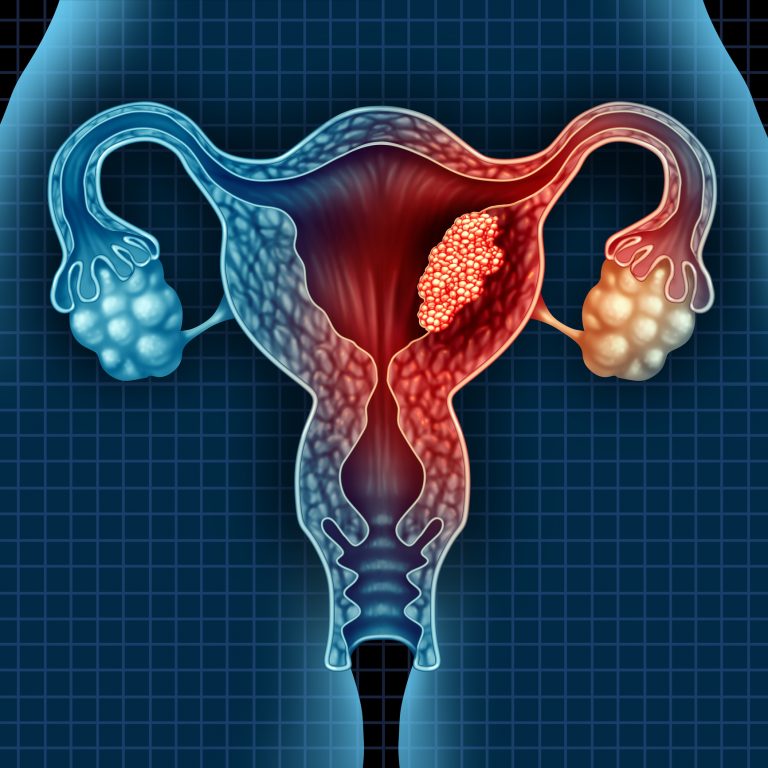
Pembrolizumab appears effective for aggressive endometrial (uterine) cancer, according to results from an international Phase II clinical trial led by researchers at The Ohio State University Comprehensive Cancer Center (OSUCCC). This immunotherapy is currently approved by the U.S. Food and Drug Administration (FDA) to treat several other forms of cancer.
For this study (the KEYNOTE-158 trial), published in the Journal of Clinical Oncology, researchers enrolled 90 women diagnosed with recurrent or advanced endometrial cancer to determine whether the drug pembrolizumab (Merck’s Keytruda) could be used to effectively treat this subset of patients with mismatch repair deficient (dMMR) or mcrosatelite instability (MSI)-high tumors. The study included patients treated at 38 hospitals in 15 countries.
Pembrolizumab works by inhibiting certain cellular receptors that prevent the immune system from recognizing and destroying cancer cells. The FDA has approved the drug for treating other cancers, including melanoma, lung, head/neck, cervical and stomach cancer.
In this study, researchers showed that 48% of advanced endometrial cancer patients experienced a complete or partial response. Two thirds of these patients also had a response that lasted more than three years. Additionally, two thirds of all patients in the study had a clinical response. This trial is the longest follow-up reported to date, with a median follow up of 42.6 months.
“These findings suggest a long-term benefit to patients. Even the potential for curative intent is now possible in patients with recurrent or metastatic uterine cancer,” said David O’Malley, lead author of the study and a gynecologic oncologist at the OSUCCC.
Clinical trials to evaluate pembrolizumab for the treatment of earlier stage disease are currently underway.
Endometrial cancer is the second most common form of cancer in women worldwide, and incidence rates have been increasing. While platinum-based chemotherapy regimens can be effective, many patients experience a recurrence. Effective second-line therapies for recurrent or metastatic disease are limited, resulting in a 17% five-year survival rate for women with advanced or recurrent disease.
Previous research suggests that up to 31% of patients with endometrial cancer have DNA structure changes known as microsatellite instability (MSI-H) and mismatch repair deficiency (dMMR). Approximately 2% these are inherited mutations (passed down through families, clinically known as Lynch syndrome) in one of the mismatch repair genes. O’Malley notes that the mutation is usually present in the tumor.
“By targeting this damaged pathway with this targeted drug, we can reset the cellular mechanisms and allow the immune system to reactivate and attack the cancer cells,” said O’Malley.
Prior to the data from this study, there was no accepted standard-of-care second-line therapy for endometrial cancer patients with MSI-H/dMMR-positive tumors; however, researchers note that the overall response rate for this study is very strong when compared to the 10-15% expected response rate resulting from other chemotherapy agents that are most often used as second-line therapy.













